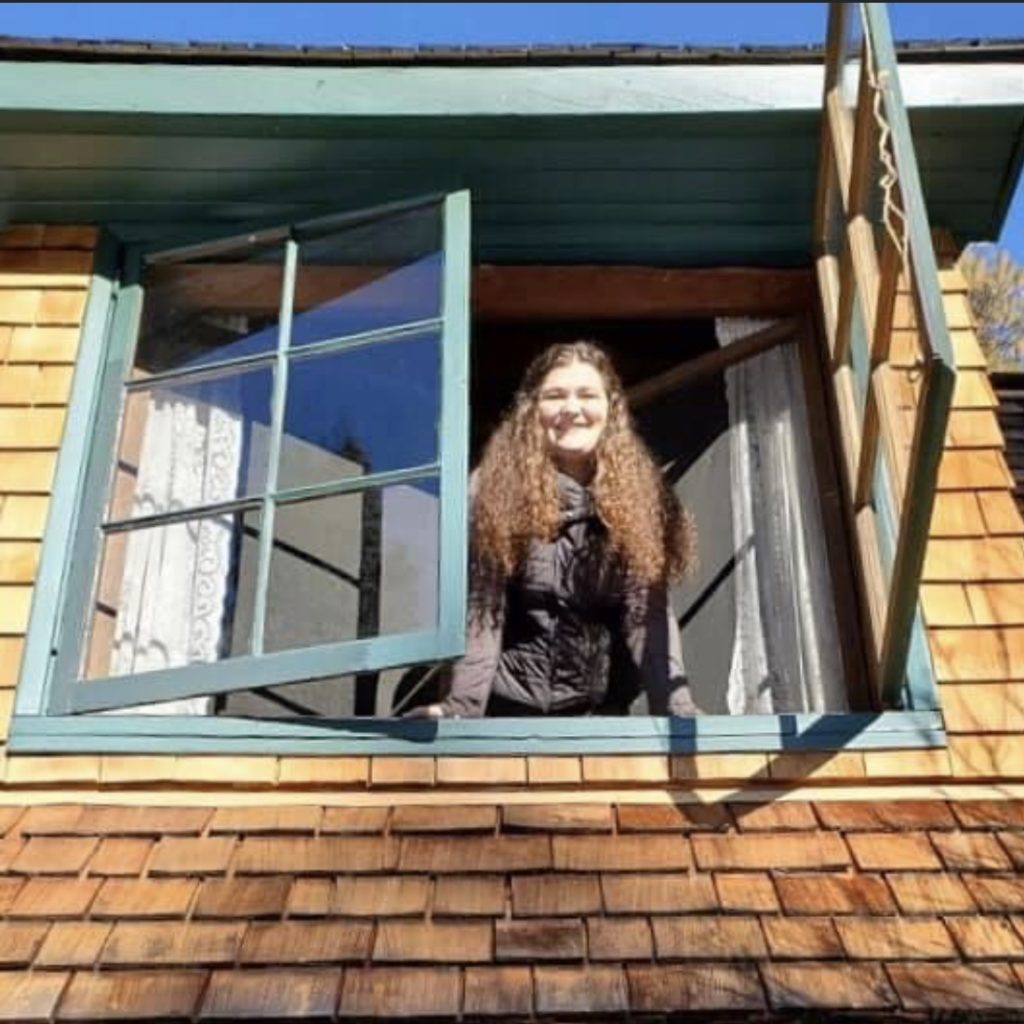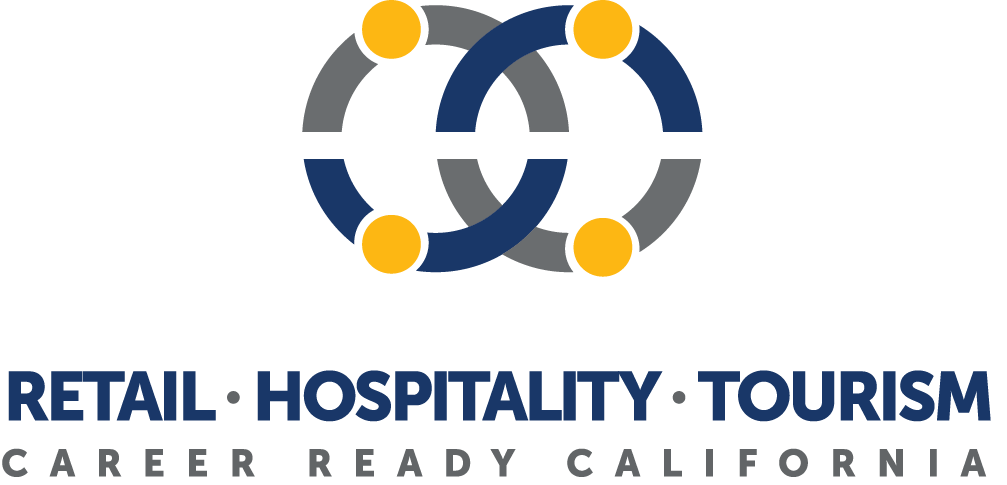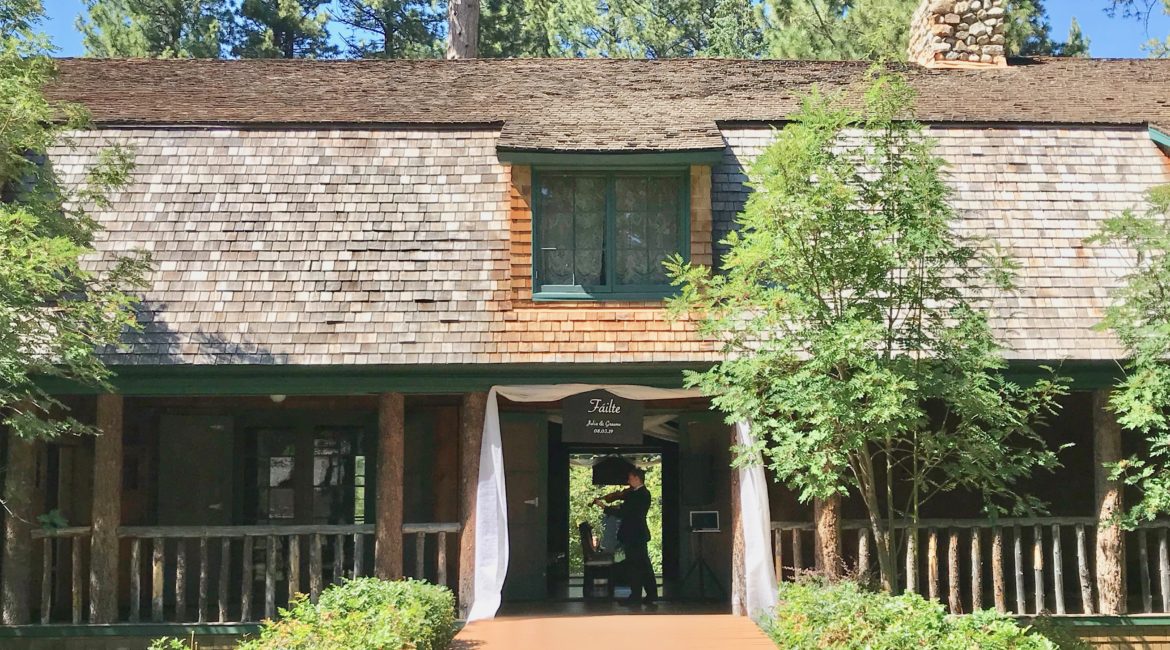
Last night I told my husband I couldn’t do something that I thought was morally wrong. One of my greatest fears is holding an event that spreads COVID-19 and possibly kills someone. As the manager of a historic estate, popular destination wedding and event venue, the last five months have taken a great mental and emotional toll on me. Conversations with brides, canceled performances and keeping current on national, state and county regulations have combined to leave me feeling drained and conflicted.
That’s the exact opposite of how I felt when I joined Valhalla Tahoe’s Board of Directors two years ago. While working as a tri-resort sales manager for Vail Resorts’ Tahoe properties (Heavenly, Northstar and Kirkwood), I was approached about being on the board of directors because of my experience with wedding sales and hospitality management.
Working at Valhalla has been a dream come true. The Heller Estate is five acres of property on Lake Tahoe’s southwest shore. Through a partnership with the United States Forest Service, the non-profit organization Valhalla Tahoe holds weddings and events in order to fulfill its mission of preserving Tahoe Heritage through Art, Music and Theatre.
After taking a more hands-on role as operations and sales manager at the non-profit, I sold out an unprecedented 9 of 12 concerts as well as increased wedding event revenue by 300 percent in 2019. I attribute much of this success to my background in sales, marketing and the skills I acquired while attending Butte Community College and California State University, Chico. I remember designing my first website in college, a skill that allowed me to redesign Valhalla Tahoe’s website to be more user friendly and bride-centric. Throughout my career, I’ve found the graphic design certificate I earned to be the perfect compliment to my BA in Journalism. I drew on all of that knowledge and experience to promote and sell events at Valhalla.
I’ll never forget the first call I got from a bride about the coronavirus in early March. It was all over the news and she asked me if the pandemic in China was going to affect her June wedding. Of course not, I said. Everything in Tahoe is just fine, there are thousands of people skiing at Heavenly right now. By the end of that week, Heavenly had closed due to concerns about the coronavirus spreading. When the bride called back for an update, I said, not to worry, we would move forward with her wedding as long as the Forest Service didn’t close our site, which I could not imagine happening.
On May 1, 2020 the Forest Service announced it was closing the Tallac Historic Site, of which Valhalla is a part, in order to help comply with California Governor Gavin Newsom’s statewide Shelter-In-Place order. It made sense; if the Tahoe beaches and ski resorts weren’t open, people from out of town wouldn’t be tempted to come recreate here.
As March turned into May, the hashtag #postponedontcancel became popular among vendors in the wedding industry. In America, weddings generate an estimated 50 billion dollars annually and that revenue was in jeopardy as gatherings were banned in most states. What industry professionals realized is that weddings are a luxury, especially destination weddings. Destination weddings generate more than $400 million dollars annually in the Reno-Tahoe area alone.
Since it wasn’t safe to come to Tahoe from other states, brides started talking about getting married closer to home. Every day was a repeat of conversations from the day before: after sympathizing with one couple about a possible postponement or cancelation, I had to start from scratch with the next of more than 70 couples on the books for 2020.
First, I worked with my May couples moving them to later in 2020, then June couples started reaching out and the emails and phone calls dominoed through the months, eventually resulting in pushing 80% of Valhalla’s 2020 revenue to 2021 and 10% being lost entirely. Wedding industry professionals are shining stars that thrive on creating joyous moments; to work with couples going through denial and grief about having the vision of their dream wedding crumble has been incredibly hard on all of us.
In late May, hope was renewed. States were starting to reopen, the Forest Service reopened the Tallac Historic Site to the public, and events were starting up again. We thought we would be able to keep the last half of 2020 scheduled. It quickly became clear that each state would be opening according to its own guidelines. While Ohio could have weddings of 500 people, California had not released guidelines for venues opening. The dividing line going through Lake Tahoe that separates California from Nevada became of critical importance. We were no longer One Tahoe. Weddings of 50 people could take place in Nevada, but just across the street (stateline) weddings were limited to 40 person ceremonies only.
According to the 2020 WeddingWire Newlywed Report, couples hire an average of 15 wedding professionals. With so much uncertainty, many wedding vendors tried to pivot. Caterers started doing boxed meals, picnic baskets and small backyard events. Photographers tried to pick up more engagements, elopements and family photo sessions. Venues started planning for mico-weddings or “minimonies” and advertising elopement packages.
I woke up every day and read the news, checked the State of California’s COVID-19 website, wrote plans for reopening safely, purchased signs and PPE, talked to Valhalla’s insurance agent, attended wedding webinars, discussed ideas for online concert series, virtual performances and ways to pivot in an attempt to continue bringing in revenue from weddings.
Even through all of the pivots and changes, there was always a voice in the back of my mind that said: this isn’t over. Gatherings aren’t safe. What will you do if/when you get sick? What if you bring this home and your husband dies because he’s immuo-compromised? What if one of your events becomes a super-spreader event? What if someone’s parents or grandparents get infected and die, how will the couple feel? Will they sue Valhalla? I kept asking myself what my personal level of responsibility would be? How would I live with the decisions I was making in the interest of Valhalla’s bottom line?
These questions only intensified as news of spikes in infections spread across the Southern United States. Valhalla Tahoe is located next to a very popular summer resort and campground. The beaches were packed, people weren’t wearing masks. I was approached daily by people asking if they could tour our historic buildings from all over the country, but few put on masks before initiating conversation. When an employee of the resort next door tested positive for COVID-19, it really hit home. Lake Tahoe is a tourist destination and people were bringing the virus here from hot spots around the country.
Still, couples called about booking new weddings and elopements. Some still were even inquiring about 100+ person events. All of them still had dreams of dancing and singing mask-free at the reception. I couldn’t understand how they could be so willing to risk the lives of their family and friends. I learned that everyone’s comfort level and beliefs about the virus are different. Some people didn’t believe it would affect them, some people didn’t think their family would get it, some people were willing to do anything to keep their dream wedding date.
South Lake Tahoe has twice as many positive COVID-19 tests as any other city in El Dorado County. Cases have doubled in the last 16 days. This week, the county’s health director said positive test results in South Lake Tahoe will be coming back this week from Fourth of July weekend, and they will most likely push the county over the state’s red line in the next two weeks. That will require the county to “toggle back” on openings of bars and indoor dining along with other businesses like museums.
Valhalla Tahoe will host its first and perhaps only wedding ceremony of 2020 on July 15. I’ll wear a mask and a face shield. The mask protects the guests and the face shield protects me. I’ll follow the state guidelines for holding events safely. We will require guests to wear masks inside during the ceremony. I’ll have a symptom check station where guests will also turn in COVID-19 waivers and acknowledge the guidelines that will help keep them safe.
Five to seven days after the event, I’ll go to South Lake Tahoe’s free COVID-19 testing center and get a nasal swab that will tell me if the precautions I took were enough. My commitment to others is to test as often as possible so if I have the virus and/or am an asymptomatic carrier, I can self-isolate and save lives.
I’m so grateful for the free testing site as Valhalla Tahoe doesn’t offer medical insurance and I couldn’t afford testing otherwise. My first test took 48 hours to come back negative, my second test three weeks later took eight days to come back negative and we’ve been told the testing site may close at the end of July.
Currently, the wedding industry in many states is in limbo and more than 1.2 million wedding industry professionals are scrambling to answer couple’s key questions about restrictions and when they will possibly be lifted. Facebook wedding industry groups consistently have posts asking if anyone can decode a specific state’s guidelines. Without guidance, venues are doing the best they can to safely hold events.
The Valhalla Tahoe’s Board of Directors will be deciding this week whether or not to “go dark” for the rest of the year. While the organization needs the money that booking “minimonies” could generate, they have to weigh the possible ramifications of continuing with events, possible lawsuits, and the expense of retaining the staff needed to do so safely.
I never thought I would feel so conflicted about my job. I am torn between what I think is the right thing to do morally and what I think is the right thing to do for the non-profit organization that I love. Everyone working in the hospitality industry right now has to make this decision on a daily basis. Which is more important: your livelihood or your health? Since the latter relies on the former and vice versa, how would one even choose?
Michelle Morton is the Operations and Sales Manager for Valhalla Tahoe a 501(c)(3) located in South Lake Tahoe, California. To learn more about Valhalla Tahoe’s non-profit mission visit www.ValhallaTahoe.com. Michelle also contributes to the R·H·T team as a graphic artist and webmaster.

